|
Recently at Mass, our priest explained the love of God as Father in a way that I had never heard before. As a parent and teacher, I resonated with his words deeply. In the Gospel, Jesus sent out 72 disciples in pairs to share the good news (Luke 10:1-12, 17-20). They came back rejoicing in all that they could do - like cast out demons - because of the name of Jesus. But our priest reminded us that this is because of God’s glory, not ours. In fact, Jesus didn’t even need the 72 if he didn’t want them. As God, he could share the Gospel on his own to the whole world, in an instant. But instead, he finds it more beautiful and meaningful to have them and us share in ministry. Yes, it is also messy, but love shared is so much more fruitful. Our priest gave many examples of how a parent lets their child help with chores. I experienced the same “I want to help!” one day as I was cutting strawberries. I could have done it in five minutes by myself, or I could let my two-year-old son help—knowing that this would take much longer, that there would be more to clean up, and that I would have to take a lot more precautions. But I sat him on the counter, and he started taking off stems as I washed the strawberries. He took a turn washing some, too. He let me cut the strawberries, but he said he would put them in the container for me. And what a delight it was to remind him how helpful he was, to have him remind me that “we have to be safe” while using a knife, to see him eat a few strawberries along the way and remark on how yummy they were, and to see the joy on his face when he put the lid on our bowl of cut up strawberries and help put them in the fridge. In the same way, God lets us help him prepare strawberries, too. He delights in our imperfect attempts to help and love, to share in his ministry, wherever it is that he has called us to serve. As I write this, it is the second anniversary of my son’s baptism. It is not lost on me what a gift and responsibility it is to raise our children in the faith: to be nurturing saints for heaven alongside my husband and how grateful I am to our community near and far who support us along the way. But again, I am reminded that God could raise our children much better than us (just ask me about tooth brushing or navigating toddler discipline). But he lets us do so and he gives us love and mercy and grace to accompany us day after day. This grace is found abundantly in the sacraments. I pray that we teach and model to our children that we can always call upon that grace, and that they have a desire to participate in it. I pray that they may say to God, “I want to help!,” knowing that all is for God’s glory—not theirs – and that through Him all things are possible. At the end of the Gospel, Jesus reminds the 72 to “rejoice because your names are written in heaven” (Luke 10:20). My prayer for my children – and for each of us as we celebrate the gift of our baptisms, is that we always know that we are loved, wanted, and called. May we know that by the gift of baptism, our names, too, can be written in heaven. To my son, I pray that you’ll always want to help prepare strawberries with me and with God. Thank you for teaching me about childlike faith in a whole new light. Thank you for letting me help God – even though imperfectly – by raising and loving you. It is mine and your father’s greatest joy to serve God through the gift of our children’s lives.
0 Comments
In October, my husband and I welcomed a little boy. Our son is a master napper—and his favorite place to nap is most definitely in his parents’ arms. He has a way of passing out with his mouth wide open (a trait of my side of the family) and arms sort of flailed. Since he was born, and more recently, our 6-month-old has been teaching me about trust. When Benjamin is passed out in my arms and begins to stir in his sleep, he opens his mouth in a quivering “O” manner, as if to say, “Put my pacifier back in my mouth, please.” He does not open his eyes. He does not make a noise. It is a simple gesture. He has a desire for his pacifier to be back in his mouth, and trusts that I will, in fact, return the fallen pacifier. He trusts that he is loved, that he is provided for. He does not even need to wake up—he stays in a state of rest despite his request. This image of my son, asking to be cared for and trusting that I will fulfill his needs, makes me think of the prayer at the bottom of the Divine Mercy Image: Jesus I Trust in You. The message of Divine Mercy was given to St. Faustina, a Polish nun. Through revelation and prayer, Jesus communicated to St. Faustina the need for the whole world to understand His love and goodness as evidenced by one of his greatest attributes: mercy. This understanding begs us to trust that His mercies are bigger than our sin, and ultimately, that we are summoned to trust in the love and mercy that the Lord has for us. Jesus says to Faustina and she records in her diary, “‘I am love and Mercy Itself…The soul that trusts in My mercy is most fortunate, because I Myself take care of it.’” (1273) Benjamin’s trust in my love is the personification of belief in Divine Mercy. We are called to radically trust in Our Lord’s mercy and love in the same childlike way that Benjamin trusts me without any sign of doubt. The Divine Mercy message, to which the Church calls the faithful, is to accept our role as children—to have the faith that He will give us what we need. We too must trust in the goodness of Our Father to give us what we need. Is my trust as radical as my son’s? Am I able to completely rest knowing that our Lord desires to shower His grace and mercy upon me? Do I ask for His graces, trusting that He wants my good? On this Divine Mercy Sunday, ask yourself if you believe in the goodness of the Father. Ask for His grace for more trust in His mercy. Ask for more mercy! Reflect on the trust of children as they live in trust, knowing their parents will fulfill their every need. This Easter season, how can we become more childlike and embrace the message of Divine Mercy? Eternal God, in whom mercy is endless and the treasury of compassion — inexhaustible, look kindly upon us and increase Your mercy in us, that in difficult moments we might not despair nor become despondent, but with great confidence submit ourselves to Your holy will, which is Love and Mercy itself. -Closing prayer of the Divine Mercy Chaplet Just before Advent, the Holy Father was leading his usual general audience when a six-year-old autistic boy, Wenzel, escaped from his family and wandered towards the pope. Blissfully unaware of the attention he was now attracting, young Wenzel scurried about Pope Francis and interacted with his surroundings—including a Pontifical Swiss Guard standing at attention nearby. After the boy’s mother explained the situation to the Holy Father, Pope Francis encouraged her to let him continue to play and then offered a beautiful teachable moment to the thousands gathered in the Paul VI audience hall:
This boy can’t talk, he is mute but he knows how to communicate. He knows how to express himself. He has something that made me think: He is free. An undisciplined freedom… but he is free. It made me think, “am I also free like that before God?” When Jesus says that we have to become like children He tells us that we have to have the freedom that a child has before his father. I think [Wenzel] preached to all of us. In referencing the call of our Lord to “become like children,” Pope Francis affirmed the unique dignity of even the youngest of human persons, namely their innate innocence, senses of wonder and curiosity, and free-spirited (and sometimes seemingly limitless) energy. Rather than characterizing the source of the “disruption” as having to be managed or handled—perhaps as parents of autistic children are all too familiar with in social situations—the pope celebrated the liveliness of the circumstances and explained that the faithful could spiritually benefit from imitating the blessed boy before them. Children are unconcerned with headlines, deadlines, schedules, requirements, and the expectations or the judgements of others. They often simply have wants they seek to fulfill and they set about observing and learning from their surroundings. They do not immediately know everything they should, and they recognize many of their needs require receiving help from another. When our Lord first called upon His disciples to become like children in order to enter the Kingdom of Heaven, He had called a child to Himself before those gathered around. I imagine the adults immediately thought to themselves, “What could I possibly gain from becoming a foolish, helpless youth? I am successful now, I know so much now, and not because I kept thinking or acting like a child!” Adults are all too susceptible to pride, be it of power, status, wealth, or knowledge. We get caught up in what the world (i.e. bosses, politicians, friends, and peers) expects of us in order to attain some level of temporal success. We entangle ourselves in the circumstances of situations, the reasons to do or not do something, and we may let too many external influences affect us unnecessarily. While intelligence or critical thinking itself is not a bad thing, adults may overthink certain situations a child would otherwise address head-on. For example, wanting to charitably help the less fortunate may tug at the heartstrings of a child to engage with that person; an adult, however, may become distracted from the needs of that person before him or her with personal judgements (or those of others around), embarrassment, selfishness, or any number of reasons to not offer assistance. Becoming like a child, then, would seem to be more pure and innocent. Think of the demands of Christianity: love God more than yourself, care for your neighbors, avoid sin and sacramentally repent whenever you fail, faithfully go to church, generously give to the needy, pray for your enemies, and serve others humbly before yourself. These commands are not meant to be burdensome or harsh except to whatever pride or selfishness we cling to. Adults may overthink their capabilities to do good and avoid evil when evaluating circumstances and how to act. To children, however, these acts are simply directives they should obey and not question or “situationalize.” This Christmas, let us renew our childlike faith by freeing our hearts and minds of prejudice and overcomplicated justifications. Our lives should be spent ministering and witnessing to God Who made each of us. In mirroring the innocent freedom of children, we can enhance our goodwill and loving charity towards others and increase our devotion and faith in God. Let us remember that our Heavenly Father loves us unconditionally: so much so that the Almighty sent His Son to dwell among us as a helpless Child. Questions for Reflection: Why did Christ say we must become like children in order to enter the Kingdom of Heaven? Have you ever learned an important truth or lesson from a child? For more resources to accompany you on your Advent journey, please click here. “The Gospel of the Family: Joy for the World” is the theme that Pope Francis chose for the upcoming World Meeting of Families in Dublin, Ireland. One aspect that will be explored is how “the Christian family, by its witness to the life and love of Jesus, is a principal agent of evangelization to the world.” Catholic teaching calls the family, the “domestic church” (Lumen Gentium, 11) and parents are told in the Rite of Baptism that they are “the first teachers of their child in the ways of the faith.”
Others in the Church, clergy, those in consecrated life, and lay people, are supposed to be co-responsible with parents not only for teaching children and young people, but most especially, nurturing them, protecting them, and witnessing to them holiness of life. When this fails to happen whether in the past or in the present, as is once again showing itself in various parts of the world, then repentance, reform and renewal are not only needed, they are necessary. Repentance, reform, renewal, and greater holiness are not possible without co-responsibility among all the faithful in deeper conversion of life in Christ as our patron, St. Vincent Pallotti, envisioned over 183 years ago in Rome. We cannot do this on our own as Pope Francis reminded all in his apostolic exhortation, Gaudete et Exsultate: “Ultimately, the lack of a heartfelt and prayerful acknowledgment of our limitations prevents grace from working more effectively within us, for no room is left for bringing about the potential good that is part of a sincere and genuine journey of growth” (GE, 50). Since we are limited, we are challenged to do, with God’s grace, as St. Vincent Pallotti exhorts us to do: "We must begin to reform our lives by putting all our confidence in God." May the Charity of Christ urge us on! In Christ, Apostle of the Eternal Father, Fr. Frank My son is just learning to walk. At 15 months, he’s starting to take his first, unsteady steps. He wobbles from chunky leg to chunky leg, looking back at us to make sure everything is alright, and plops on the floor after a few strides. He loves it when we cheer him on, and then he gets back up and begins again. We, too, are beginning again. We have walked into a new calendar year. This Monday, we will celebrate the end of the Christmas season on the Solemnity of the Baptism of Our Lord and enter into Ordinary Time. How are we walking into the new year? As a parent, I know my son is taking his first steps towards walking securely. Little does he know that these steps will prepare him to one day run. I know his trajectory, but the path for him is still unknown. Similarly, God knows our path. He knows what He created us to be and do, what our gifts and talents are. He made us to run, and yet He does not interfere with our free will. We, like my son, are often walking into an unknown future. We take step after step in faith with God walking alongside us. How do we make our journey? Are we stumbling or walking confidently in God’s grace? Do we look to Him when things seem unbalanced and reach for His hand? Even when things seem steady, do we turn back, like my son looks to his parents, and look for God and His reassuring presence? Do we ask God for His help and guidance? God walks with us throughout each chapter of our lives. His coming into the world in the Incarnation, which we celebrated at Christmas, is a beautiful and mysterious proof of the lengths God is willing to go to be with us. He wanted to be intimately involved in the human story—and so He became one of us. He interacted with mankind as a man Himself, ultimately taking on the weight of our sin and opening the doors to salvation. God intervened in a radical and beautiful way by physically walking alongside us in the person of Jesus Christ, and He continues to do so through His church, the sacraments, prayer, and our communities. As we end the celebration of Christmas and enter into the new year and Ordinary Time, I invite you to reflect on how you are walking into this season of life. We have spent the weeks of Advent preparing for and celebrating the coming of Jesus Christ into our midst. But have we left Him in the manger? Have we forgotten to bring the Christ child home with us or kept room for Him in the inn of our hearts? Let us allow God to be intimately a part of our lives throughout this upcoming year. May we walk with Him and towards Him each day, whether we are stumbling or walking confidently, so that we, like my son, may come one day to run. Question for Reflection: How can you walk more closely with God and toward Him this year? Growing up in a fairly large extended Catholic family, I remember the Thanksgivings of my childhood always including long, loud dinners, preceded by seemingly longer prayers of grace before the big meal. As children, we were encouraged (or, really, required) to go around the table and each name one thing we were most thankful for. It could be something small or large, momentous or enduring, as long as it was something we were truly grateful to have in our lives. My parents, aunts, and uncles were naturally trying to make sure we didn’t take for granted the food on the table, let alone all the other blessings in our young lives. There were plenty of years when, fancying myself the dutiful elder of two children, I’d spend the week or so leading up to the holiday concocting the best possible thing to say I was thankful for, lest my younger sister or one of my cousins come up with something better. And then there were the years when I completely forgot to prepare, only to halfheartedly come up with something on the spot when my turn came. While the former may have boosted my ego, the latter made up for it by knocking me down a peg. I’d often think to myself, “Could I really be so ungrateful that that’s all I could come up with?” As we hear in today’s Gospel reading, one of the ten lepers, “realizing he had been healed, returned, glorifying God in a loud voice.” Jesus commended the Samaritan man’s gratitude, telling him, “your faith has saved you.” Don’t we all prefer to think of ourselves as that dutiful, humble foreigner, rather than counting ourselves among the nine ungrateful ones who couldn’t be bothered to thank Jesus? And yet, how quick we are to forget the truth that we are, in fact, abundantly blessed by God. I’ve always found this story to have two key points. First, we are better able to receive God’s blessings and grace when we are grateful: “your faith has saved you.” The second is a bit more hidden, though. Note how Luke mentions that, “one of them, realizing he had been healed, returned” to thank Jesus. It’s not necessarily true that the other nine were just a bunch of ingrates. Rather, they were doing what Christ had instructed them to do. They obeyed in an act of faith, and in so doing, were healed along the way. While they were healed physically, however, the leper who returns is also healed spiritually: he is saved. How often do we forget, in the midst of the stresses and struggles of life, that we’ve each been blessed by God? It’s not a matter of remembering to thank Him for the big things; those parts of life are the easiest to be grateful for. It’s the small things, the things we take for granted, that we ought to try the hardest to be thankful for. Not only will that reflection make us more appreciative of our blessings themselves, it will remind us even more deeply that all of life’s blessings are gifts from God. Question for Reflection: What are some things you are grateful for this year? "I will give them a new heart, and put a new spirit within them." -Ezekiel 11:19 I hold my son Leo closely, rocking him back and forth in the quiet of the night. He throws his head back, pushes against me, and babbles to keep himself awake. As his mother, I must be patient and persistent. The fruit of my efforts results in his deep breathing, dangling arms, and heavy eyelids. Leo is now ten months old—crawling, pulling himself up, climbing. While he still looks to me for assurance and affirmation, he much prefers exploration to stillness. Not wanting to miss a thing about this big world, he wrestles with me as I put him down for naps and at bedtime. I often think as I sing to Leo and soothe him to sleep: This is how I am with God. I wrestle with him, pushing back, filling my life with distraction. I prefer my will—my way—to his own. I forget to rest in his stillness. In my graduate program, a professor once shared a particularly beautiful insight that still strikes me today. He said that if two human beings rest long enough on each other’s chests, their hearts sync up and beat in rhythm with one another. As a mother, this insight is especially poignant and beautiful to me—I think of my son’s heart slowing down and mine speeding up to embrace and beat as one. Then I apply this truth to God: have I allowed myself to rest in him? Do our hearts beat as one? The Gospels tell us that John, the Beloved Disciple, reclined on the chest (kolpos in Greek) of Christ at the Last Supper. Applying my professor’s insight to the Gospel, we can gather from this image that John’s heart beat in time with Christ’s, whose own heart beat perfectly with his Heavenly Father’s. As Christians, we are all called and invited to become the Beloved Disciple. This is not a privilege for a select few. Resting on the kolpos of Christ and allowing our hearts to beat in time with his gives our lives true meaning and fulfillment. As Pope Francis said, “The Heart of the Good Shepherd tells us that his love is limitless; it is never exhausted and it never gives up. There we see his infinite and boundless self-giving; there we find the source of that faithful and meek love which sets free and makes others free; there we constantly discover anew that Jesus loves us even to the end’ (Jn 13:1), without ever being imposing.” This intimacy with God, however, does not happen overnight. The Gospel does not say that John rested on the chest of Christ right after Jesus called him to discipleship on the Sea of Galilee. This intimacy was the fruit of years spent in the presence of Jesus. It is the fruit of a deep relationship with him—sitting at his feet, sharing meals, listening to his preaching, witnessing his miracles. We do not rest on the chest of a stranger. We are called, therefore, to grow in intimacy with God by opening our hearts to his. As the Catechism of the Catholic Church states, “It is the heart that prays. If our heart is far from God, the words of prayer are in vain.” Though Christ opens his heart to all of his children, we are called to build that intimacy with him, as John did, through prayer, stillness, the sacraments, and service. The famous quote of St. Augustine reminds us that our hearts are restless until they rest in God. And so we will not feel satisfied in this world until we have allowed ourselves to rest in the heart, on the kolpos, of Christ. “God’s heart calls to our hearts, “ Pope Benedict XVI observed in his homily on the Solemnity of the Sacred Heart of Jesus. When we allow ourselves to rest in the heart of Christ, he invites us “to come out of ourselves, to forsake our human certainties, to trust in him and, by following his example, to make ourselves a gift of unbounded love.” Our encounter with the heart of the Good Shepherd, therefore, is what strengthens us to go out in our respective vocations and live as missionary disciples. May we rest on the kolpos of Christ and experience his perfect charity so that we may become “gifts of unbounded love” to the world. As we deepen our intimacy with God, let us look to John’s childlike trust and ask for his intercession in order to become who we were created to be: beloved disciples. Questions for Reflection: Do certain things keep you from growing in your relationship with Christ? How might God be calling you to rest in him? For resources on prayer, please click here. Now you are Christ’s body, and individually parts of it. –1 Corinthians 12:27 I commute to work every day by train through Chicago’s “loop.” It’s the perfect place for people-watching. Recently, I was on a busy sidewalk when a woman who looked rather tired and disheveled pushed a stroller near the crowd with her child. Behind me were two very elegantly dressed women in a hurry. The woman with the stroller asked the passing crowd, “Can you spare some change for our next meal?” It’s a question that I’ve heard too often downtown. I felt a pang of sadness and guilt. Often, I am unsure how to respond. The women behind me continued on past her and began commenting: “What a horrible mother”; “Of course I’m not going to help her out. Why would I want to give her my money?” Those comments hurt even more than seeing this poor mother and child suffer. In the first letter to the Corinthians, St. Paul writes, “As a body is one though it has many parts, and all the parts of the body, though many, are one body, so also Christ. . . . If [one] part suffers, all the parts suffer with it; if one part is honored, all the parts share its joy.” The mother and her baby, the women behind me, and all those who are a part of my community of friends and family are of one body. As stated in Lumen Gentium, “By communicating His Spirit, Christ made His brothers, called together from all nations, mystically the components of His own Body. In that Body the life of Christ is poured into the believers who, through the sacraments, are united in a hidden and real way to Christ who suffered and was glorified.” We live as one with Christ and with one another even amidst the poverty, injustice, and messiness we experience. This letter from Paul to the early Church deepens their understanding of the Body of Christ and its physical makeup. Each person has a function within it which works alongside the other members and promotes the common good. As the Catechism of the Catholic Church notes, “The unity of the Mystical Body produces and stimulates charity among the faithful.” I often fall into the temptation of removing myself from a group who seems holier than me, those who are more involved in their community or are outspoken in ways that I’m not. I even tend to exclude myself from the community of pedestrians walking down the sidewalk. I forget that we make up the Body of Christ and that if others suffer, I suffer. If others rejoice, I rejoice. I also share a part of myself with each of them. One of my mentors once said, “Our goal is always to connect. Even if it’s uncomfortable, we are made for relationship.” As a Christian, I am called to notice those in the community around me and to connect with them. Mystici Corporis Christi, the encyclical from Pius XII, also outlines the meaning of being a part of the Mystical Body of Christ. “Each member of the Church, of the Mystical Body of Christ, if authentic, is integrally bonded in soul, and hopefully in heart, through the Incarnation, by the Spirit, with Jesus, Son of God, and son of Mary, divine and human,” wrote Msgr. Owen F. Campion. We are bonded in soul and heart because of Christ’s physical and spiritual sacrifice as the Son of God. We become whole in him and in relation to others. As members of the Church, we are called to be a family who loves and cares for others, even those outside of our communities. In all circumstances, the Body of Christ leads me to a holier life. When I am doubtful or uncertain, my faith community allows me to grow. When I’m overwhelmed, others will kindle the fire of faith within me. I fully experience joy when I experience it with others and share the Good News and the love of Jesus. I may do this differently from a trained hand who provides, or a speaker with a gifted tongue, but I’m using my gifts as a member of the Body of Christ. We are called to take part of this community through our unique identity with authenticity. I paused that day on my commute because of this mystical experience of community. I witnessed the pain of the poor mother and child on the Chicago sidewalk, and the harshness of the response of the two women who were walking near me. I became more aware of this truth in the wounds and challenging emotions I experienced. I feel pain because I am connected to all people in some way. Conversely, I can feel joy if I make small choices to build up the Body of Christ. St. Paul outlines this for us, and we hear it in St. Teresa of Avila’s words, “Yours are the hands, yours are the feet, yours are the eyes, you are his body. Christ has no body now on earth but yours.” We must pay attention like Jesus would, and love our physical and mystical body. Questions for Reflection: What unique gifts can I share with others as a member of the Body of Christ? How can I become more aware of the communities I live in? "From starry skies descending,
Thou comest, glorious King, A manger low Thy bed, In winter's icy sting;" ~St. Alfonso Liguori 1732 In a few short days, millions of children will wake up excited to see what is under the Christmas tree. Many will be eager to wake up their families so they can unwrap these gifts. There is a sense of pure joy and excitement that radiates from these children. I have a young Goddaughter, who was explaining to me over Thanksgiving about all the different things she hopes to receive. Her eyes lit up at just the mere thought of Christmas morning. It made me stop and wonder about my own excitement and joy for Christmas. I get caught up in all of the trappings of the season and not the very reason it exists. I started to question if I had that childlike excitement for the birth of our Lord and Savior, Jesus Christ. The more and more I thought about it, the more I realized that I have lost part of that joy. Advent and Christmas provides one the time to stop and think about how the Prince of Peace, the King of Kings, the Messiah, did not come in some powerful show of force or splendor. Rather, God chose quite the opposite. He came to us as a child, born in a manger. The human embodiment of love and mercy came to us in the form of a helpless baby. In the middle of the holiday season, you rarely take the time to stop and think about how perfect that is. Being a godfather has taught me about the amazing ability of a child's capacity to love and forgive. Many a family function, I will walk in and my goddaughter drops what she is doing and runs over to give me a big hug. Her face lights up with joy and excitement. One can only imagine a young Jesus showing the same sort of love to Mary and Joseph. The beauty of this simplicity has inspired the Church for two thousand years. A wonderful example of this is the Christmas Eve Mass at the Vatican. At the end of Mass, the pope carries a small statue of Jesus to be placed in nativity scene as the choir sings the carol "Tu Scendi Dalle Stelle". This carol was written by Saint Alphonso Liguori in 1732 and translated from Neapolitan into Italian by Pope Pius IX. This hymn is about Christ as a child who descends from heaven out of love for us. "Dearest, fairest, sweetest Infant, Dire this state of poverty. The more I care for Thee, Since Thou, O Love Divine, Will'st now so poor to be." I think it is the perfect hymn for these last few days of Advent. For these next few days, I invite you to join me in a quest to be like a child. A quest to seek the joy of Christ's birth of in a pure, whole hearted, and simple way. Pope Francis tweeted about a year ago "to be friends with God means to pray with simplicity, like children talking to parents." For the next few days, as prepare to celebrate the birth of Jesus, let us embrace peace, love, joy, and mercy just like a child who runs to greet you with open arms and an open heart. For more information on Advent, check out our resources and devotional material here. Children have a way of shedding light on a question or topic we hadn’t thought of or paid much attention to. Suddenly, a topic they might casually bring up becomes extremely important and sends us into a research frenzy in search of the correct answer. A few weeks ago, a coworker shared stories about her young children with me, some of which included teaching them lessons about God. Her son asked why we pray for others if God knows the outcome. While discussing prayer and God’s omniscience with my coworker, I dug deep down in my memory to recall catechism lessons from Catholic grade school. I shared some answers with my coworker, but felt the need to consult my parish priest for further insight. Ultimately, I understood that prayer deepens our relationship with God. My parish priest proposed the alternative: “If we never needed to pray, we would never think of God. We would forget him and our relationship with him would atrophy, if not entirely disappear.” Jesus tells us to pray as he prayed. James 4:3 says, “You ask but do not receive, because you ask wrongly, to spend it on your passions.” And in somewhat of a response, John 16:24 says, “Until now you have not asked anything in my name; ask and you will receive, so that your joy may be complete.” As we pray, our desires can become purified. Perhaps we begin praying for “x” outcome, and as we pray, we come to realize “x” is not the best option and instead we are called to “y”. Prayer serves to change us. While God is omniscient, omnipotent, and omnipresent, he has also provided us with free will. We must pray and discern which choices lead us to follow God’s plan. As St. Thomas Aquinas says in his work Summa Theologica, “We pray, not that we may change the Divine disposition, but that we may impetrate that which God has disposed to be fulfilled by our prayers...” (Pg. 3492) Praying for others is a way of loving them. Prayer for others allows us to grow in compassion and keeps us from focusing on selfish concerns. The Catechism of the Catholic Church states that even since Abraham’s time, people have interceded (asking on behalf of another) in prayer for one another. It is a “characteristic of the heart attuned to God’s mercy.” (CCC 2635) Intercession for our fellow man is an act of selflessness, even to the point of praying for our enemies. “The intercession of Christians recognizes no boundaries, ‘for all men, for kings and all who are in high positions,’ for persecutors, for the salvation of those who reject the Gospel.” (CCC 2636) Sometimes we can be God’s instrument by providing comfort or assistance to a community member in need when we learn of or are asked to pray for someone. We can become God’s answer to a prayer. While we do not know why God may grant one prayer and not another, it’s important to know God loves us and desires what is best for us. And being in a close relationship with God is best for us. As my parish priest said: “the ‘stuff’ God grants is secondary.” For more resources on prayer, please visit the Catholic Apostolate Center Prayer and Catechesis Resource page. [Jesus] said to [the disciples], “Let the children come to me. Don’t stop them! For the Kingdom of God belongs to those who are like these children. I tell you the truth, anyone who doesn’t receive the Kingdom of God like a child will never enter it.” Then he took the children in his arms and placed his hands on their heads and blessed them.
(Mark 10:14-16) I’m sure many of you have heard of this passage before, and how Jesus especially loves children. Since August 2014, I have been surrounded by little humans age 2 to 5 (“5 Things 5 Year-Olds Teach You” rolled better than “5 things 2 to 5 Year-Olds Teach You”). I serve as an assistant teacher for a preschool classroom at Mercy Neighborhood Ministries in Philadelphia, and I wonder if Jesus knows… I wonder if Jesus knows the horror my troublemaker places in my heart as I yell at him from across the classroom to stop swinging between the chairs, only to watch him in slow motion – first ignoring me with a wide grin as he looks straight in my eyes, then slipping and falling face first onto the tile floor. A second of cold silence hangs in the air for him to fill up his little lungs, then the loudest wail ever snaps everything back to life as he looks up at me with tears and bloody lips. Or how they test my patience every day with their sassy “No!”s, and doing the exact opposite of what I ask them to do. Or what little germ sacs they are, touching everything and anything, and putting their bacteria culture hands straight on me (I must say, my hand-washing habits have improved significantly since I started working with them). So exactly why does Jesus love these disastrous little humans so much? Well, they are so irresistibly cute that it’s easy to forget about their mischief. On a more serious note, they somehow shine God out of their little bodies and bring His desires alive to the present, to the now in my life. So here are five things I learned through my kids. *Names of the students have been replaced with a pseudonym for confidentiality. 1. Eyes for the “small things” “Miss Graaaaace, I have a booboo on my finger.” “Oh no, let me see. Where is it?” “Right here.” “Where??” “Right hereeee.” And there it is, an itsy bitsy red dot you could barely see with naked eyes. “Can I have a band-aid please?” “Oh, I don’t think you need a band-aid for that.” “BUT IT HUUURTSSSS. PLEASEEEEEEEE.” I’ll be honest. When this happens – several times a day – I get a bit annoyed, and I give them a band-aid more for my sake than theirs. But their little eyes that notice their little booboo’s are also the first to notice little cuts or scratches on me that I didn’t even know about. They stare at my tiny wound for a good while, and ask in a soft voice filled with concern, “Are you okay, Miss Grace? Does that hurt a lot?” In that moment, I could not feel any more cared for. And I think God intended for everyone to feel that way. 2. Life is full of little cheering things! One day, we passed out tiles of various colors and shapes to each student for a lesson on patterns and shapes. As I was walking past Cole, I casually asked him what color was his tile. It took him a second to realize that it was “ORANGEEEE!! MY FAVORITE COLOR!!!”. He was so joyous that he literally couldn’t contain it in himself and jumped out of his chair. Replace this orange tile with just about anything at any given moment. I recently saw an article that said preschoolers laugh about 300 to 400 times a day, while adults only laugh an average of 17.5 times. Catherine McAuley, the founder of Sisters of Mercy, wrote in one of her many letters, “I would like to tell you all the little cheering things that God permits to fall in our way”. It is often easy to fall into a trap of finding daily routine repetitive and fatiguing. To combat this, I began to look out for little cheering things throughout my day to find more joy and gratitude. My goal is to get as good as my kids. 3. Transformation is possible “Repeat after me, okay? Es, aitch,” I say as I point at the letters on his paper with the tip of a pencil. “Es, aitch.” “Ey, double yoo, en.” “Ey, double yoo, en.” “Good. Now can you spell your name by yourself?” I anxiously ask Shawn. “Deeeee…” “No, no, no, which letter does your name start with?” “I don’t know,” answers squirmy Shawn with a half-embarrassed, half-playful smile. It is beyond my understanding. We just went over how to spell his name about thirty times, if not more. And every single time, he fails to remember these five letters. What is more frustrating is that we have been doing this every day for several weeks now. With my hopes crushed and patience stretched thin, I wonder if I can ever help Shawn learn how to spell his name. Then one day, I hear Shawn spelling his name all by himself. Surprised, I walk over to his table and I ask him to repeat it. With his eyes full of smile, he proudly recites his name out loud. In the next few weeks, he starts writing his name with backward S’s and a couple of letters missing, and in another few weeks, he can write his whole name by himself. Shawn is not the only one who has shown me that transformation is possible. LayLay, who has given me the opportunity to change diapers for the first time ever in my life, is now completely potty-trained and Pampers free. My little two-year olds who started off the school year unable to speak anything are now calling me “Mitt Gwayth” and defiantly yelling “NO!” when I ask them to do something that doesn’t suit them. Sometimes I miss the good old days when they just sat quietly, but whenever I watch them talk to each other, I am in awe. My kids assure me that slowly, but surely, transformation takes place. I have no doubt that every one of my students has the potential to transform and do what they dream of, and become whoever they want to be. It is so easy to believe that. So why is it so hard for so many of us to believe in ourselves and in each other? Because I’m sure God feels the same way about us as I do about my kids. 4. How well God knows us I have come to know my students by more than just their name. I know their parents, grandparents, siblings, cousins, aunty, uncle, and godparents. I know what backpack, folder, jacket, shoes, sweater, hat, gloves, and scarf each of them have. I decipher their little whispering voices and call them out by name with my back turned toward them. I can tell which crooked handwriting belongs to which kid. Each child gets the same blanket to sleep with every day. I know who has asthma, who is lactose-intolerant, and who simply doesn’t like to drink milk. The list goes on and on. Now, just imagine how much better God must know us if I got to know my students this well in just a few months. 5. How to welcome Hands down, my favorite time of the work day is walking into the dining hall in the early morning when the kids are eating breakfast. They greet me by flying out of nowhere to give me (or my leg) a tight hug and looking up at me with a wide smile as if my appearance is the best thing that had happened to them so far in the day. Every morning, no exceptions. From the very first day, my kids had no inhibition in expressing this kind of welcome towards me. Here I am, a complete stranger, not to mention the only Asian in the whole day center, and my kids either don’t notice it or don’t care. Caring less about creating barriers between us and them with external differences – socioeconomic status, age, religion, sexual orientation, race, and whatever else – and caring more about welcoming others into my life with mercy is what I’m aiming to grow in during this year of service and beyond. We may not be able to stop grey hair from sprouting out (which is increasingly becoming my problem), or be blessed with turbo speed metabolism and unending supply of energy. But we can all still be a kid at heart, right? This post was originally written and posted on the Catholic Volunteer Network Blog. For more Catholic Volunteer Blog Posts please visit the CVN Blog Page. The Catholic Apostolate Center is proud to partner with the Catholic Volunteer Network by developing faith formation resources for volunteers and alumni, assisting in its efforts to provide and advocate for faith-based volunteerism and collaborate in many additional ways. “For God so loved the world that he gave his only Son, so that everyone who believes in him might not perish but might have eternal life. For God did not send his Son into the world to condemn the world, but that the world might be saved through him.” (John 3:16-17)
Most parents feel incredibly protective of their children and hate to see them hurting. Chances are, if you ask your mom or dad, they would say that watching you break an arm, fall off your bike, or be picked on by a bully was painful for them. Maybe you are a parent who has experienced how hard it can be to see your child in pain. God, who is infinitely perfect, loved us so much that He was willing to sacrifice His only Son so that we would have a chance at Heaven. God knew that some would chose to reject His love. He knew exactly how painful it would be, for both Himself and the Blessed Mother, to watch His Son suffering on the cross. On Good Friday, we commemorate the ultimate sacrifice. The Stations of the Cross allow us to journey with Christ the last hours of his life on earth. Even if you are unable to physically move from station to station, it is a wonderful opportunity to mediate on all that Jesus was willing to undergo for our sake. The First Station: Jesus is condemned to death. The Second Station: Jesus carries His cross. The Third Station: Jesus falls the first time. The Fourth Station: Jesus meets His mother. The Fifth Station: Simon of Cyrene helps Jesus to carry His cross. The Sixth Station: Veronica wipes the face of Jesus. The Seventh Station: Jesus falls the second time. The Eighth Station: Jesus meets the women of Jerusalem. The Ninth Station: Jesus falls the third time. The Tenth Station: Jesus is stripped of His clothes. The Eleventh Station: Jesus is nailed to the cross. The Twelfth Station: Jesus dies on the cross. The Thirteenth Station: Jesus is taken down from the cross. The Fourteenth Station: Jesus is laid in the tomb. Imagine how the Virgin Mary must have felt when she met her Son on the way to Golgotha. Her heart must have been breaking watching Him struggle to carry the cross. Her tears must have hurt Jesus’ own heart. After Jesus fell for the third time, He got back up and continued on. He didn’t grumble or complain. It would have been easy to decide that it was too hard and to just stop. When we carry our own cross, however small that burden, it is incredibly easy to complain to God and to say that we cannot do it. We might not be able to on our own, but with God’s help, all things are possible. In His last moments on the cross before He died, Jesus was thinking of us. “Father, forgive them, they know not what they do.” (Luke 23:34) God stands ready to give us His unconditional love and forgiveness. He has already done the hard part. Through His suffering and death, He threw open the gates to Heaven. He is ready to give us the graces to get there. All we need to do is ask Him for it. Jennifer Beckmann is a Staff Assistant for the United States Conference of Catholic Bishops. This past Sunday, we celebrated the First Sunday of Advent, the time of preparation for the coming of Christ. This Advent season also signals the beginning of the liturgical New Year. Now, I’m the kind of girl that has been secretly listening to Christmas Carols since mid-November (with headphones and lowered volume so no one knows my secret!) so Advent is one of my favorite times of year. As a little girl, I loved the buildup to Christmas and loved helping my mom prepare our house for the torrent of annual Christmas events. From decorating the tree to baking cookies, I loved it all.
When we were little, my mom modeled an activity we did in school, placing an empty manger on our mantle with a bowl of straw. She explained to my brother, sisters, and me that Advent was about preparing for Christ’s birth and we had to prepare a comfortable crib for him by filling the manger with pieces of straw. She encouraged us to do kind things for those we knew and when we did to place a piece of straw in the manger. Throughout Advent we delighted in finding ways we could add more to the manger. The one rule that she had was that we could only place straw in the manger quietly, without bragging of our good deeds to each other, and we had to decide personally what qualified to place straw in the manger. The straw grew and grew and by Christmas the manger was full, ready for Christ. Although this activity seems small in the hustle and bustle of the Advent season, it taught my siblings and me a lot about what the season was really about. Even as children, my mom strove to make sure that while we could get involved and excited about preparing for Christmas, we had to understand the true meaning behind the season. Advent, she always explained, was about preparing for the coming of Christ and not simply getting excited for Santa to visit. While we celebrate Advent and Christmas in many different ways, the important thing to remember is just how miraculous the Incarnation truly is. The miracle of the Incarnation is that Christ was made known to us in human form, to ultimately sacrifice Himself for us. While this time of the year has many stresses as we try to prepare for all that is expected of us, keeping the “true meaning of Christmas” in mind throughout Advent is a good habit to get into. As you begin this Advent season, I encourage you to take some time to remember what we are preparing for. The selfless love that Christ demonstrates is what we celebrate this Advent season. Take a moment to step back and reflect on how you can prepare yourself for His coming. Rebecca Ruesch is the Blog Editor for the Catholic Apostolate Center For more information, check out the Catholic Apostolate Center's Advent Resource Page! In my kindergarten class, there is one little girl who loves to ask questions about faith. After going to Mass in the chapel last week, she asked me, “Who was the almost naked man on the wall in pain?” I smiled and answered, “Jesus, because he loves you very much.” While contemplating this, a few minutes went by until she had another question. She asked, “Why do they give cookies at church and why didn’t I get one?” These and many other inquiries were made that day, so it struck me: how can we as faithful Catholic adults help young children better understand our traditions, history, and faith? We must understand as children do.
In the Gospel of Matthew, Jesus said, “Let the children come to me, and do not prevent them; for the kingdom of heaven belongs to such as these” (Matthew 19:14). Only with the virtue and openness of a child can one truly have eternal life. Similar to my student who was so curious about the Mass, we as adults of faith must remember to love as children love, and to eagerly ask questions as children ask them. Having a burning desire to love and serve God is something that so many adults yearn for, but so few are able to achieve. Often times, children can be an example to adults of unconditional and innocent love for others. Understanding our faith is difficult at times, and it is often hard to see the good in difficult situations. We get caught up in the stressful details and hardships that come with living our daily lives, and frequently become over-scheduled and sluggish in the practice of our faith. As “grown-ups” we have so many things on our minds, and deepening our understanding of God’s love and mercy is easily forgotten and overlooked. Instead of grumbling about an overdue bill or the laundry list of things to do, stop and think about how lucky we are to have a job or a family that loves us. Children love their parents and caretakers for simple things like good food, a comfortable bed, and new clothes. While we are forgetting that the simplest actions mean the most to children, we also forget that the simplest moments mean the most to God. A quick prayer of gratitude in the morning, for a traffic-less commute or a child’s hug goodbye goes a long way…God notices every grateful moment. Our Holy Father, Pope Francis, believes that education and teaching provides knowledge of beauty, truth, and goodness. Inspiring others with a desire to learn about our faith is crucial in the life of a Catholic–whether you are a teacher, parent, or role model. Children are innocent and believe what they see. When they see parents and teachers serving God and the Church, they desire to imitate them and do the same. We must be like children in order for them to understand the Lord, ask questions, make mistakes, get messy…and always know that God loves us. Krissy Kirby is a Kindergarten teacher for the Archdiocese of Washington D.C. “The work of teaching is one of the most important in the Church.”
~St. John Baptist De La Salle Today, we often take for granted Catholic schools. Most likely either you or someone you know attended a Catholic school. A Catholic education is often seen as top quality, and Catholic schools are considered some of our finest places of learning. The modern concept of education dates back to the late 17th century France and one individual in particular: St. Jean-Baptiste de La Salle, founder of the Brothers of the Christian Schools. His work was not only revolutionary in method, but also unique in terms of educating the poor and underprivileged. Some 300 years later, de La Salle’s vision of educating those most in need remains strong in the United States through the Miguel model school. The Miguel school system was established in 1993 with the sole purpose of educating under-served children, focusing on students in middle school. The system was named after St. Miguel Cordero, a Christian Brother who dedicated his life to the education of poor Ecuadorians. Recent news about families and children fleeing their homes in Central and South American to find better educational and economic opportunities demonstrates that the need for quality education is as great today as in the time of St. Miguel. Here in Washington D.C., a Miguel school was established in 2002 as an extension of St. John’s College High School with 8 students – San Miguel School of Washington. It rapidly grew, and this past year the school graduated its largest class of 23 students and currently has a total of sixty-three Latino boys in grades six to eight. All San Miguel students come into sixth-grade from DC public schools and, on average, have reading and math skills of a fourth-grader. By the end of their time at San Miguel as eighth graders, they are 100% proficient in these subjects. [1] This success results from their own hard work and that of experienced teachers and tutors. Additionally, San Miguel, like most Miguel-style schools, operates on an extended day and year-round school program (200 school days vs. a traditional 160 days). This hard work pays off - 98% of San Miguel graduates have either completed their high school diploma or are in the process of doing so. The graduation rate for Latino males in DC public schools is 46% [2]. Clearly, San Miguel and its unique style of education is paying off. In addition to my role at the Catholic Apostolate Center, I work as an intern in the Development Office at San Miguel School. It has been an exciting time and a true blessing to work to make sure that San Miguel students receive the education they deserve. It has helped me to grow in trust for the good work that the Church does as a whole. We as Catholics have the obligation to serve others, as apostles of Christ. We have the responsibility to do our part in the greater effort of Christ’s mission. San Miguel School truly changes the lives of its students. By serving these at risk Latino boys, I know that I am changing the world and trying to do my part. Patrick Fricchione is the Research and Production Associate for the Catholic Apostolate Center and an intern in the Development Office of San Miguel School. [1] San Miguel School DC, website, sanmigueldc.org. [2] Statistic from the National Center of Education Statistics. |
Details
Archives
April 2024
Categories
All
|
About |
Media |
© COPYRIGHT 2024 | ALL RIGHTS RESERVED

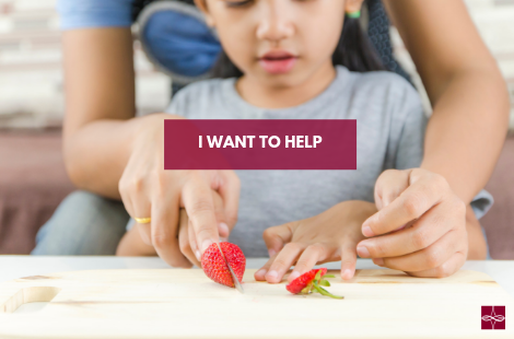

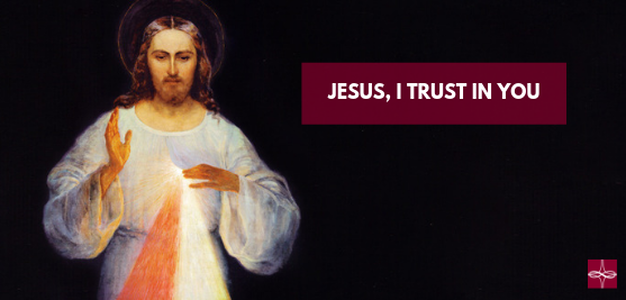

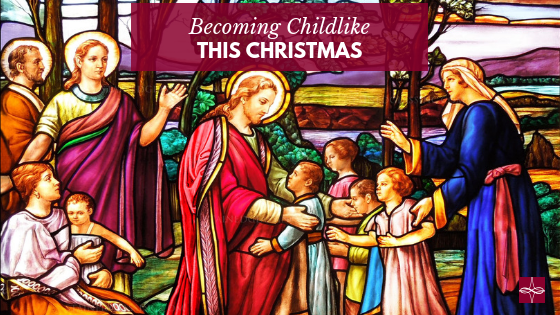

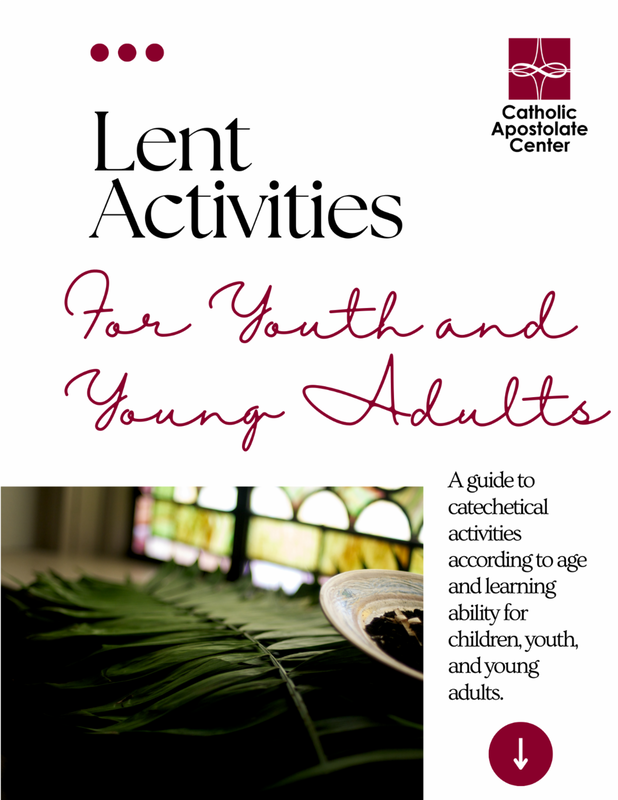
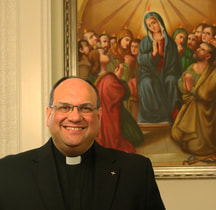


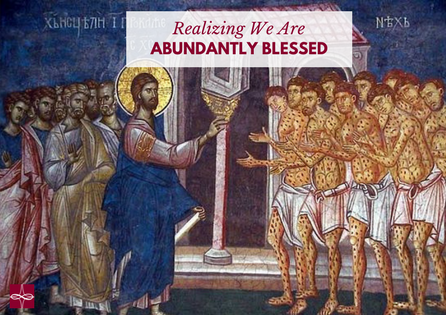

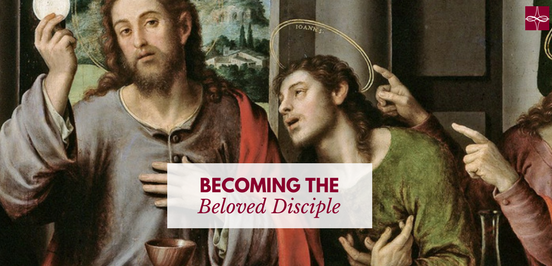

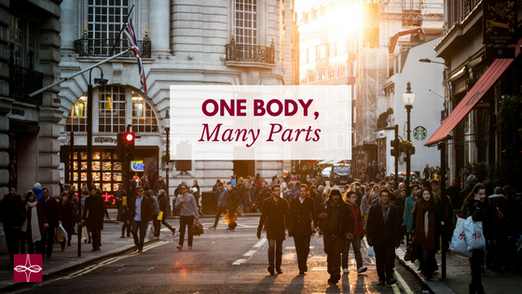

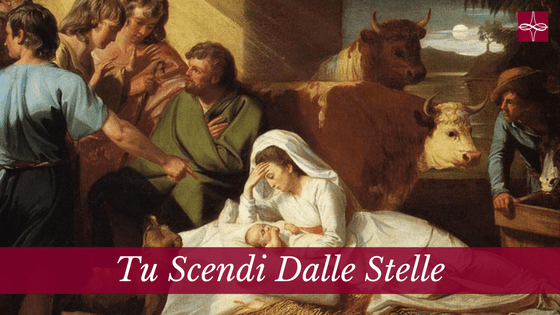

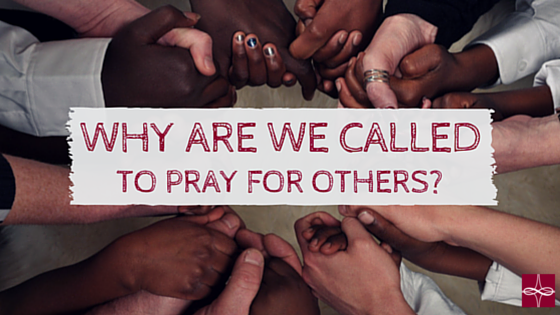




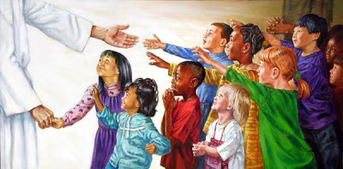
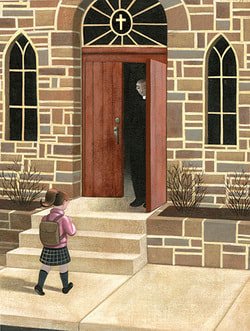
 RSS Feed
RSS Feed